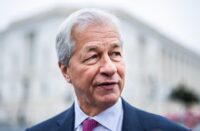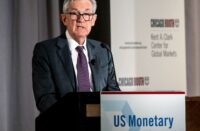The potential impact of President Donald Trump’s tariff policy on the US economy and consumers has economists on high alert. However, one group that may stand to gain from this situation are American tourists travelling overseas. The reason for this lies in the effects of tariffs on the US dollar and other global currencies.
Economists predict that foreign import tariffs will strengthen the US dollar and possibly weaken other major currencies, such as the euro. If this scenario comes to pass, travellers will find their money goes further while abroad in 2025. This is because their dollars will have more purchasing power for things like accommodation, dining out, and locally priced guided tours.
James Reilly, a senior markets economist at Capital Economics, has stated that “tariffs, all else equal, are good for the US dollar.” In January, the Nominal Broad US Dollar Index reached its highest monthly level on record, dating back to at least 2006. This index measures the dollar’s strength against the currencies of the US’s main trading partners, such as the euro, Canadian dollar, and Japanese yen.
In addition to this, Trump has recently imposed an extra 10% tariff on Chinese goods, set to take effect on March 4. There is also a 25% duty on all steel and aluminum imports. Furthermore, a 25% tariff on Canada and Mexico may be enforced in March, after a 30-day pause.
Trump’s retaliatory tariff plan, based on available information, could see the average effective tariff rate on all US imports rise from less than 3% currently to about 20%. This could add about 2% to US consumer prices and temporarily boost inflation to 4% in 2025, according to Paul Ashworth, Chief North America Economist at Capital Economics.
On the other hand, the economies of other nations may likely suffer from the US levies. For example, Europe may experience a decrease in exports to the US, negatively impacting the European economy. This could lead the European Central Bank to cut interest rates to stimulate the economy.
Lastly, while there is considerable uncertainty over how the US would apply tariffs on other nations, retaliatory tariffs from trading partners could diminish a surge in the US dollar. Economists suggest that the dollar could weaken later in the year if the world retaliates against the US and these trade policies impact the US economy.




